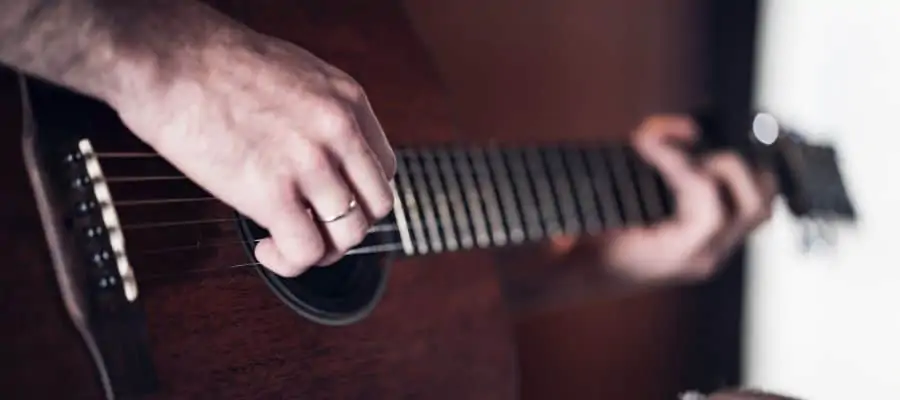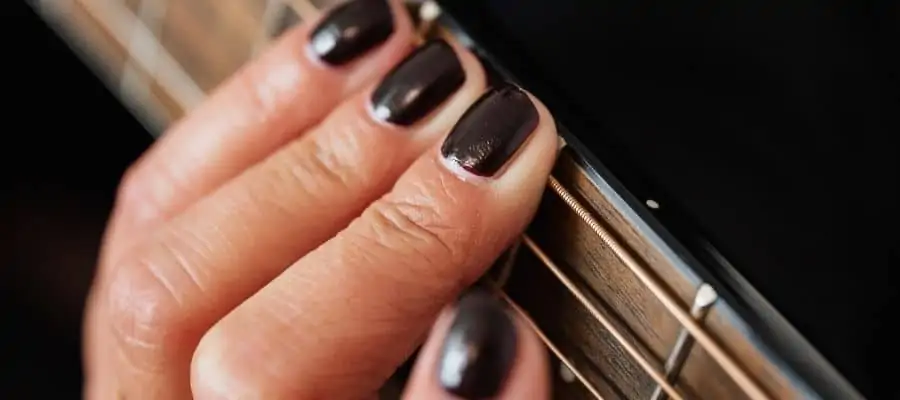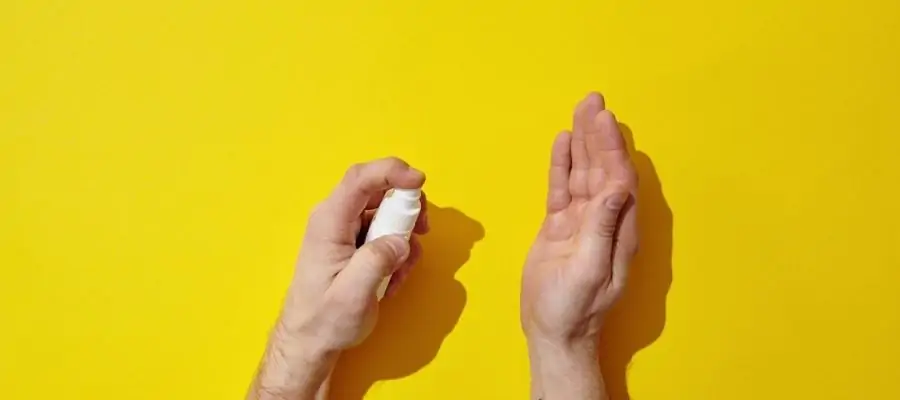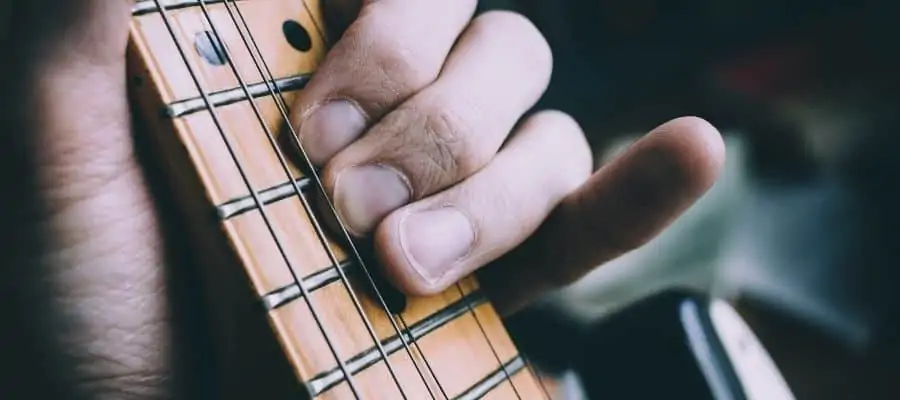The guitar is one of the oldest instruments, and with notes’ combinations can make a pure sound which stands for a versatile one and is compatible with many genres. According to Fender, about 16 million people started learning the guitar in the previous two years.
So, Should I learn guitar? Yes, you should definitely start learning the guitar if you are interested in guitar-based music. Besides the fact you’re going to know how to play an instrument, your physical and psychological state would be much better. It’s like a life-changing experience.
Choosing an instrument to play is the beginning of a remarkable journey. And obviously, the guitar outshines other musical instruments in some ways, enhances some life aspects, and gives you life-lasting benefits.
Is It Good Or Bad To Learn Guitar?

Learning a new skill is never bad. It boosts your confidence, beats boredom, keeps you motivated, and gives you a sense of purpose. Learning guitar has a lot of benefits, both for your soul and the body.
One guitarist says it is worth learning any skill, which will make you a complete person. Also, guitarists describe playing as a therapeutic, calm, and joyful feeling.
Is It Difficult to Learn Guitar?
You have to know that every beginning is hard. Furthermore, you will feel frustrated sometimes, which can be demotivating and a reason for quitting. But, keep in mind that no one did a great job while playing for the first time.
Learning guitar is tough, but the more you practice, the easier your journey will be. Some things are super-challenging to every single beginner.
Building Calluses
The beginning can be painful. It comes from indenting the skin on guitar strings. Once you build strength in your fingers, the pain will disappear.
Deep pains will be gone in a week, and you will be able to feel the change on your fingertips. But, the actual calluses development is going to be in three weeks. One month of playing gets you in good shape if the practice is regular.
Keep in mind that non-regular practice can bring you to the beginning. It can soften your fingers, so pain is again knocking on the door.
To fasten the process of building calluses, you should have short but frequent and regular practice sessions. Also, spending more time with an acoustic guitar at the beginning is effective. It’s because of the higher action and acoustic guitar strings that use the medium to heavy string gauge size.
Transitioning Between Chords
It is essential to learn chords. But, the problem begins if you want to play a song, and you need to shift between chords. In that case, you’ll need smooth transitioning between them, and you can’t do that as a beginner for the first days of learning.
Beginners need to develop their muscle memory by practicing transitioning between chords with a metronome and keeping fingers’ movements at a minimum.
Barre Chords
Barre chords are hard to play because your fingers and hands are not strong enough to hold down all strings if you’re a beginner.
Beginners need to learn barre chords away from the headstock in the first days because guitar strings have more tension near the neck, and the frets are far apart.
Is Learning Guitar A Waste Of Time?

Learning guitar is not a waste of time because it gives you lasting benefits and makes you a complete person who will be a favorite in the company for sure.
While learning guitar, you will feel desperate in some moments, you do some things incorrectly, and you can’t see the progress. At the same time, you see some people better than you are.
But, don’t compare yourself with others. There is always someone with better practice and a born-with talent. You can set your goals so high to be the best version of yourself, not the best among others because people are different. Comparing can discourage you and demotivate you.
Nothing that empowers your body and the soul is a waste of time. Your favorite rock star was at your place once. And look where that person is now!
How Long Does It Take To Learn Guitar?

It’s all about goals. If you want to play guitar for your and your friends’ fun and have a focus on playing chords, then three months will be enough for you to learn basics, such as open chords, barre chords, smooth transitioning between chords, standard Pentatonic scales, and several of your favorite songs. But still, you will hear buzzing barre chords, and you will not know the whole fretboard or several techniques.
And if you see yourself on a stage with serious musicians, it takes several years to achieve that goal. Anyways, it all depends on how much you practice and if your practice is efficient enough.
What Age Is Too Late To Learn Guitar?

It’s never too late to learn something new. The struggle of learning something new is proportionate to the willingness to put in the effort to acquire skills.
Children, due to neuroplasticity, naturally can learn faster and not put as much effort as adults while dealing with new things. Also, adults have less time for learning new skills because they have their children to take care of, and they have to work for a living. But, that doesn’t mean that you give up on your dreams because you are an adult.
Learning guitar at 70 years is twice harder than learning at 35 years. But the point is, you can still memorize things if you have a strong will. Age is such a poor excuse!
What Are The Benefits Of Learning Guitar?

Learning guitar is much more than being able to play your favorite songs. It is beneficial for us in many ways.
Motor Skills Improvement
Learning guitar requires muscle movements that the body hasn’t done before. It’s like your hands are not responding to your thoughts. But, by practicing regularly, guitar players will see an improvement in their fine motor skills, hand-eye coordination, and upper body control.
Over time, movements are going to be faster. Soon, chords and rhythm are going to be a piece of cake.
There are a lot of therapies for particular groups of people based on music. One research shows that playing the instrument can improve stroke patients’ motor skills.
Concentration And Memory Boost
Researchers say that both memory and concentration develop by learning the guitar.
An instrument requires deep concentration and focus because you have to think about many things at once, so you get better with multi-tasking over time. Therefore, learning guitar will develop your concentration, which is useful for playing the guitar and other aspects of life.
Also, you need to memorize chords, scales, concepts of music theory, and songs, and it’s something like brain training that stimulates the brain parts responsible for cognitive and muscle memory.
Like concentration, improved memory and multi-tasking will also translate into everyday tasks.
Confidence Boost
When you first took the guitar to practice, you thought it was impossible to learn. But, now, when your improvement dives out, you are confident and proud of yourself.
That confidence gained by smashing the challenging guitar solo translates into other life aspects. And of course, everybody loves to have the guitarist in the company – you’ll be amazed how people look at you differently.
Having confidence is a key to success. It’s like an inner voice that motivates you that you can do anything in this world. And people love seeing the confident guitarist on a stage. They look much better than a better guitarist with low self-confidence!
More Discipline
If you don’t have discipline, you won’t see improvement in any life aspects, and people will find you an inert and uninterested person.
If you decide to learn the guitar, you’ll have to do short but frequent practice sessions. Waking up every day with daily tasks in your mind that you need to finish makes you a more disciplined person. You’ll see the consequences of not practicing every day, and therefore you’ll also be aware of the outcomes of not being disciplined in other aspects of life.
Fun
Maybe practicing scales or barre chords is not fun in the first days. But, once you become good at it, thanks to practicing regularly, you’ll have fun by playing what you’ve learned. The fun is like an award for you for being disciplined in practicing the guitar. Of course, people around you also have fun when you play for them.
Connections
Sharing goals with others, helping others, and other people helping you will make your learning path easier. Besides that benefit, you’ll make like-minded friends. There was research in Germany, and the researchers found out that practicing an instrument in groups made children more cooperative, supportive, and friendly.
Every live performance can also allow you to meet new people and exchange numbers with them. Maybe a future best friend or partner is hiding out there.
Some bands have members that even live in the same house. They write, record, jam, and practice together, but at the same time find themselves as a family.
A Heart Protection
Research says that guitarists who played the guitar for 100 minutes a day had lower blood pressure and heart rate than those who didn’t. And as the heart slows down, you feel more relaxed. Therefore, the stress is gone as well as anxiety and depression.
And if you are dealing with heartbreak – don’t worry. The guitar is there for you to run away from the moody feeling.
Is Learning Guitar Good For Your Brain?

Playing an instrument is an information integration coming from the sense of hearing, vision, and touch. Research says that playing an instrument can change the structure and function of the brain in a positive, developing way. So, if you are in the process of learning how to play the guitar, you can say that your brain begins to be different from others’ brains.
As I said, playing the guitar can boost your memory and multitasking. Also, you’ll be faster at solving problems, making decisions, and processing information in everyday tasks.
It’s also helpful in children’s development and prevention of dementia.
What Are The Side Effects Of Playing Guitar?

Like everything in the world, playing guitar can have some drawbacks, too. But remember that for every problem, there is a solution.
Hand And Finger Pain
The most common thing happening to beginners is this side effect. It takes time for your hand to be more flexible and powerful, and also your fingertips to develop calluses as a barrier between your nerves and the strings. It takes time, but it’s time spent practicing. Keep on practicing every day, preferring shorter sessions.
Some people also develop tendonitis in their wrists, caused due to friction and strain produced due to overuse of the wrist muscles. They describe it as a ”dull ache”. Also, some of them develop a tennis elbow, a condition that affects the upper forearm due to overusing the muscles attached to the elbow that help straighten your wrist.
Shoulder And Neck Pain
You have to learn how to hold the guitar properly to avoid discomfort in your neck and shoulders. It’s also essential for you to choose the right guitar size. If you practice on a smaller guitar than you need, you will crane your neck and hunch the shoulders.
Discouragement
The beginning is not easy, so you’ll feel frustrated on some days. But, keep on practicing, and you’ll see the results and get an award – life-lasting benefits!
Time
Practicing the instrument can be time-consuming, so the other life aspects, such as social life and family, need to wait. It’s hard to organize your time, especially if you have kids and a tough job.
But, the rule is to start with short sessions at the beginning of your learning journey and continue with them if you don’t want to master the guitar. So, maybe this disadvantage will not be the problem. But if you dream of becoming a pro, you’ll need to practice, travel and record more.
Money
Playing guitar can become quite expensive. You need to buy a guitar and an amp. You should maybe adjust it, buy strings from time to time and hire a teacher, buy lessons online or apply and pay for a musical school, etc’.
Can You Get Carpal Tunnel Syndrome From Playing Guitar?

If you practice and play the guitar, you need to do rapid, repetitive, similar movements off all fingers, which causes the overuse condition called carpal tunnel syndrome.
This side effect is not a specific one for guitarists – everyone who does repetitive and similar fingers’ movements is at high risk. But, it solves by using remedies, and for a syndrome at a higher stage, surgery. Warming-up, stretching exercises, and yoga are good for both prevention and therapy.
How All Happens
Overworked and stressed flexor tendons are the cause. These tendons run from the forearm to the fingertips. They help you curl the fingers and play chords or pinch/pluck.
Overworked tendons’ sheets inflame and swell, so they push against the median nerve, the main motor and sensory highway for the hand and fingers, and decrease its function.
Both tendons and the median nerve pass through a carpal tunnel made from bones. So, that is why this condition is called carpal tunnel syndrome.
Symptoms
You can feel a weakness in your hand or a limited hand movement. You’ll also feel burning, tingling, and pain.
Fretting Hand VS Picking Hand
The fretting hand’s position is stressful to the hand. Tendons stay twisted and contracted more than usual. Adding rapid and repetitive finger movements to this hand position, your hand is in danger of having carpal tunnel syndrome.
At the same time, picking hand is also possible to have this condition because fingers move, and they are in a constant and contracted position which is stress for flexor tendons.
Does Playing Guitar Help With Mental Health?

One of the main reasons you should start learning the guitar is its impact on mental health. Fender survey results say that over 16 million people started learning the guitar in the US over the COVID-19 pandemic, and they found it helpful during challenging days.
To manage a person’s mental health, some organizations and schools use playing guitar in a role of therapy. It’s like a cure for stress, anxiety, and depression.
You can read some stories on the Internet about people finding the cure for their current mental state in playing guitar. One of them is Hannah’s story, who says the guitar helped her run away from anxiety and overthinking.
Also, playing an instrument gives you a chance to express your creativity and emotions. Of course, you can connect mental health with other benefits of learning the guitar – good social life, having fun, and improving yourself by learning new things.
What Does Playing Guitar Do To Your Hands?

Playing guitar does some changes to the hands. In the first days, you will feel pain in your hand and fingers, with red and sensitive-on-touch fingertips.
You’ll develop calluses soon – a thicker skin as a response to pressing the guitar strings. Playing the guitar makes your hands and fingers more flexible and more powerful.
Also, playing guitar makes the fingers on a fretting hand longer because they constantly stretch while playing. People playing the guitar for several years can see the difference by comparing both hands. So, it’s not noticeable immediately.
Do I Need Skinny Fingers To Play Guitar?

You don’t need skinny fingers to play the guitar. Long and skinny fingers are good to reach frets that are further apart. Stubby ones are good for bending, for example.
But, think about Shawn Lane – a man with small hands and stubby fingers still played massive stretches at high speeds. The most suitable fingers to play guitar are whatever kind of fingers the guitarist has. It’s just a matter of technique.
Is Playing Guitar Attractive?

Playing guitar does make a person more attractive, and there are many reasons for that. First of all, playing the guitar is associated with being soft at heart and smart. It’s also an incredible feeling to watch someone play the guitar. Whether you play the acoustic guitar or rock out onstage, the effects are similar.
According to the Daily Mail article, men who play the guitar are 90% more attractive than non-players.
Can You Make Money As A Guitarist?

There are some ways to use guitar-playing skills to build a sustainable business.
Freelancing
You can become a session guitarist and play live or for recordings. You can find bands that need a guitar player.
Also, you can search for a job online on some freelancing platforms, such as Fiverr, UpWork, Freelancer, and Peopleperhour. You sell your recordings and work and get nice money for it. Just be patient.
Teaching Others
You can become a tutor and advertise your skills with posters or online ads. Also, you can get this kind of job on some freelancing platforms and give guitar lessons online.
You can create a guitar course and sell it on your website or Udemy, Skillshare, and Udacity. Be realistic and don’t offer something you can’t provide.
More Live Performances
It’s hard to start without some connections, but having a social media presence is crucial. Also, offer to play for free in some restaurants and bars. If they like it, they will hire you and pay you.
Sites And Monetization
Upload songs, practicing sessions, tutorials, and covers on YouTube to advertise your skills, gain followers, and watch hours to get into the monetization system and earn money.
Also, you can create your website, upload content, put ads and monetize.
Street Performing
If you feel comfortable playing in front of the people on the street, this is the way of earning money that you should try, because it’s one of the fastest ways for that.
How Much Should I Pay For My First Guitar?

In my opinion, you should spend about $200-$400 on your first guitar. If you want to buy an electric guitar, spend about $200-$400, and $150-$250 for a classical or an acoustic guitar.
Once you put your playing on a higher level, you’ll need more advanced equipment for more serious work.
Can I Teach Myself To Play Guitar?

If you asked yourself this 20 years ago, the answer would be no. But today, helpful information is everywhere. The Internet is so powerful and has a database of resources for people who want to learn anything. And what is noteworthy – it’s free!
Conclusion
It’s not difficult to learn the guitar, and you don’t need any genetic base to start with it. You’ll deal with some things at the beginning that can be frustrating sometimes, but keep in mind that every start is hard.
Don’t think about how old you are – the guitar is friendly for every person. You only need the motivation to start and a dedication to continuing practicing regularly.
Playing guitar gives you life-lasting benefits. You’ll be rich with one more skill, and your health will be better. Also, you can make money as a guitarist in different ways.
Stick to the guitar and enjoy all of the benefits. Think about your improvement, and don’t let anything discourage you in that beautiful journey.
If you are not sure about learning the guitar, only think about being more attractive, smarter, and stress-free.
If you found this article useful you may want to save this pin below to your Guitar board

Recent Posts
Some guitarists insist on buying an expensive amplifier with their electric guitar. They assume that this is a must for every type of guitarist out there. However, in some situations, this isn’t...
Top 50 Free Realistic Guitar VST Plugins With Sound Examples
As technology has rapidly advanced in the recent decade, computers are stealing more and more roles from physical musical instruments and accessories. Nowadays, you do not need expensive amps,...

